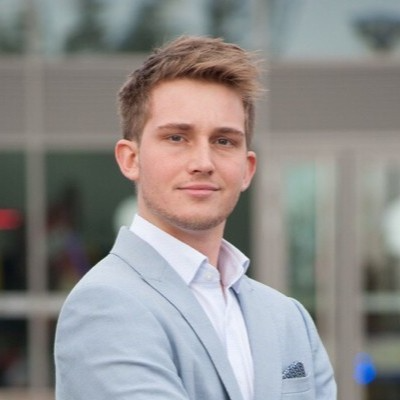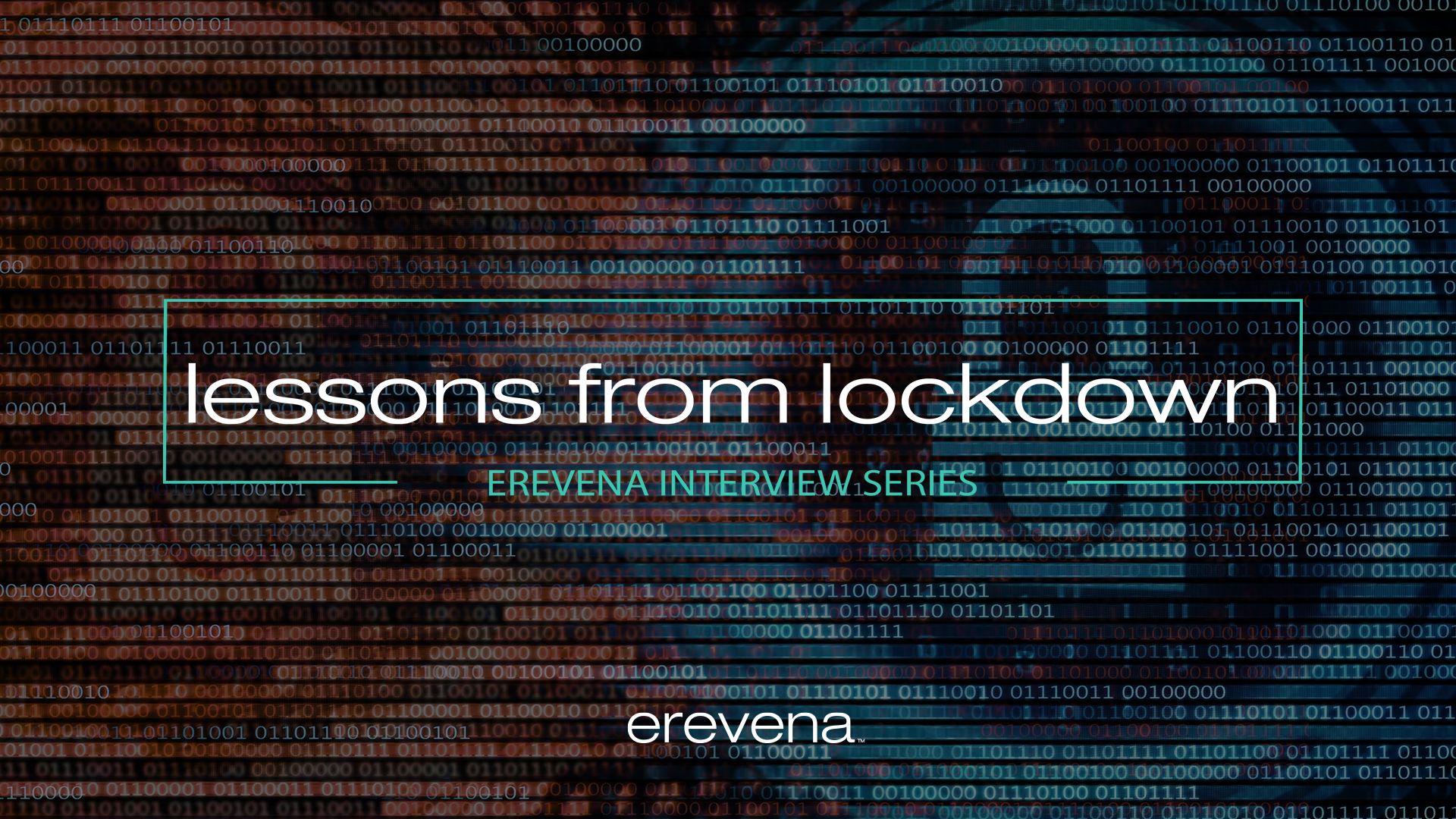John Mears, Chief Operating Officer at Havr, spoke to Jack Drury, Principal at Erevena about the opportunities presented by remote hiring during the Covid-19 pandemic and talks about the longer term changes these have brought about in the business.
Havr was founded in 2017 by Simon Laurent and Alexandre Ballet, software engineers based in Compiègne, France. Havr manufactures BrightLock which is the first smart lock to open doors with LiFi technology: an access code can be encrypted within your phone and communicated via your phone’s flash. They offer a B2B solution in a space dominated by B2C vendors, with both the hardware and software necessary to allow enterprises to manage and share access to critical infrastructure access. Backed by angel investors, they’ve grown from the original handful of key members to a team of over 20 people.
What hiring are you doing currently?
We are continuing to grow across the company, particularly in product, marketing and design. For example, Erevena are helping us to hire an embedded systems engineer. Covid-19 has definitely affected our hiring, we’ve had 2 candidates drop out at a very advanced stage because they got worried about the economic impact of the current crisis on start-ups. They currently had job security so lost their appetite for the risk and the fun offered by a start-up.
We’re quite cautious for a start-up, with a strong social responsibility, but there is always an element of risk and we want to make sure that we’re attracting the right people.
“In a sense Covid is a good test in a way as you can see who handles adversity well and who’s not afraid of risk.”
How has your hiring process changed since the lockdown?
Our process has become longer – or at least includes more stages. Because people aren’t able to come to the office, we’re missing out on the informal interactions, such as the time spent, before interviewing, showing them around the office and introducing them to the teams. To make sure we get that social interaction, which allows us to be sure of cultural fit, our remote hiring processes now include 3 or 4 15-minute chats with the people that they’d be working with.
One of the strengths of Havr is the fact that we have a physical product that brings everyone together. This is at the core of us being able to create a really welcoming feel as a team of professionals who have a common objective. When hiring remotely it’s much more difficult to get this across.
Adapting to Covid-19 hasn’t been too difficult however, as many of early stage interviews were done remotely. We’ve just extended that to the latter stage, and made product demonstration, and meeting the team remote. We always give a demonstration of the product as part of the hiring process, so this is also done remotely now.
What do you think the longer impact will be on the company?
The recent experience with lockdown due to Covid-19 has convinced our engineers that you can work remotely as a hardware company and we’ve decided to give all our team the opportunity to work this way in the future if they choose to.
To mitigate some of the challenges and still provide for our employees as we’d like to, we’re researching good Fablabs that our engineers can meet up in and we’re implementing department meetups every two months, and also week-long creative workshops (in cool locations across Europe).
“Covid has forced us to really think about how we’re set up.”
These changes will impact the types of people that we’re looking to hire. We need people who have a strong ambition for the company as well as personal ambition. The interview process will really delve into the question of trusting candidates to deliver remotely against the company objectives. Do they have a strong belief and passion for Havr, and does this fit with what they want for themselves personally?
A key advantage that we believe we’re already seeing from remote working is the ability to work the ability to work in an asynchronous manner. If people choose when to work, and work according to their daily patterns and body clocks, a culture will evolve where people aren’t expecting immediate answers which will enable people to really focus on a single task, away from the interruptions of their phone or Slack.
This will also enable us to change the who we’re able to hire, for example we can attract people who work in different time zones. We will initially limit this to people who are located within about 4 hours of France, so that working days cross over, which gives us all of Europe. Opening up remote working gives us the advantage of flexibility to attract more talent whilst retaining our existing top employees. People with families may not have been previously attracted to us because we didn’t have the flexibility to accommodate their requirements, this will now change and open up new talent pools to us.
And this isn’t just about increasing productivity for Havr. Our goal has always been to help our employees be productive, so they live happier and more fulfilled lives. For example, I recently went for a long afternoon hike as the sun was out and caught up on work in the evening. Work becomes less of chore when it can be moulded around our passions.
Will you move to a completely remote culture?
Trying to balance flexibility, happiness and productivity, we expect the new normal to look something like this: we will all meet up physically every 2 months and new starters will be onboarded face-to-face. While we will keep a central office, Havr’s ‘hub’, we’ll be paying for remote employees to have access to co-working spaces. We believe that social interaction is critical for well-being, creativity, and innovation, and so will encourage people to work in them at least a day a week.
In this structure of distributed and remote employees, maintaining effective communication and community is a key challenge. We’ve dedicated a key employee to internal communication and have set up our software stack around it. The Notion app is revolutionizing asynchronous working and complements Slack very well. We’re organising online gym sessions, and have opened numerous slack channels (memes, recipes etc). However, being a true French company, we are very much missing our monthly in-office Cook Offs. Food still can’t be shared virtually.
“Working remotely will definitely allow us to attract better candidates. It’s more difficult to manage a remote team but if it means that we can get a high calibre team on board it’s going to be worth it.”
John was talking to Jack Drury, Principal at Erevena. We solve complex hiring challenges for high-growth and disruptive technology businesses. Finding exceptional talent requires a team with deep market knowledge and Erevena provides unrivalled connectivity to the industry’s leading executives. Jack leads our searches in operations, pre-sales, customer success and product. These are often first-in-function hires for early-stage VC-backed companies.
Share this article:











